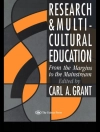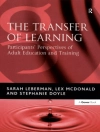Teaching primary computing without computers?
The Computing curriculum is a challenge for primary school teachers. The realities of primary school resources mean limited access to computer hardware. But computing is about more than computers. Important aspects of
the fundamental principles and concepts of computer science can be taught without any hardware. Children can learn to
analyse problems and computational terms and
apply computational thinking to solve problems without turning on a computer.
This book shows you how you can teach computing through ‘unplugged’ activities. It provides lesson examples and everyday activities to help teachers and pupils explore computing concepts in a concrete way, accelerating their understanding and grasp of key ideas such as abstraction, logic, algorithms and data representation. The unplugged approach is physical and collaborative, using kinaesthetic learning to help make computing concepts more meaningful and memorable.
This book will help you to elevate your teaching, and your children′s learning of computing beyond the available hardware. It focuses on the building blocks of understanding required for computation thinking.
Tabella dei contenuti
Robots by Helen Caldwell and Neil Smith
Musicians by Sway Grantham
Artists by Scott Turner and Katharine Childs
Explorers by Sway Grantham and Kim Calvert
Code breakers: Dpef Csfblfst by Mark Dorling
Magicians by Paul Curzon and Peter Mc Owan
Gamers by Yasemin Allsop
Cooks by Jane Waite
Scientists by Jon Chippindall
Circa l’autore
Helen Caldwell is the curriculum lead for Primary Computing in Teacher Education at the University of Northampton. Her teaching covers the use of technology across primary subjects, implementing the computing curriculum and assistive technologies for SEN.












